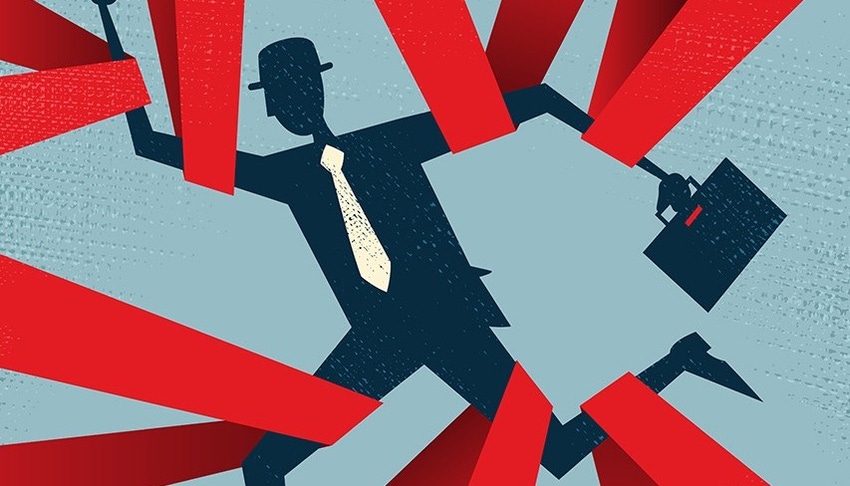Verizon has aimed the threat of litigation against the FCC if it fails to correctly position its next move in the perennial debate of net neutrality. On its policy blog page, Randal Milch, Verizon’s General Counsel said: “whatever the FCC decides about new Net Neutrality rules, the whole thing is headed for another round in court.”
November 6, 2014

Verizon has aimed the threat of litigation at the FCC if it fails to correctly position its next move in the perennial debate of net neutrality. On its policy blog page, Randal Milch, Verizon’s General Counsel said: “whatever the FCC decides about new Net Neutrality rules, the whole thing is headed for another round in court.”
Net neutrality is one of the industry’s burning issues that does not seem to go away. Telecoms has been wrangling with the notion of keeping the internet fair and open ever since the world realised it will revolutionise how we do business, buy goods, communicate with each other and consume media.
The last two points in that list, communication and media delivery, appear to be the reasons why the raging net neutrality debate is once again rearing its head in the US. Verizon has come out on its official blog page and stated it will have no problem bringing up litigation against the FCC if it decides to reclassify broadband providers in the US by reinstating its “Title II” legislature.
Such reclassification would see broadband internet providers, such as Verizon and Comcast, become labelled as telecommunications providers rather than information services and utilities. Subsequently, these companies would be subject to a substantially increased level of regulatory pressure to deliver neutral internet services. The bit that appears to have frustrated Verizon most, however, is that under the rules of Title II, the FCC has the legal power to impose some clauses, but not others.
In the statement, Milch said: “The FCC has the opportunity to create net neutrality rules that prevent any harmful ‘paid prioritization’ practices that some fear, and to do so in a way that both ensures the rules are not overturned and makes further litigation a diminishing prospect.”
It seems that Milch is saying the FCC isn’t quite in a no-win position, but it does have to use its legal powers with metronomic precision to ensure both parties get what they want. Whether other proponents or opponents of Title II see it the same way remains to be seen.
In 2011, Verizon filed a claim against the FCC’s Open Internet Rule, and earlier this year it was ruled that the FCC had mis-regulated and was subsequently forced into amending its policy. Nobody likes litigation, it’s not what anybody really wants, but Verizon has sued the FCC before and it doesn’t seem to be afraid of doing so again if the FCC falls off of the net neutrality tightrope.
The issue surrounding net neutrality primarily relates to whether ISPs can levy charges against content providers for delivering its services.
The major question is about who will benefit from Title II, and who will lose out. Not reclassifying ISPs as telecommunications providers will likely lead to the development of an internet “fast lane”. Consequently, ISPs stand to gain more revenue from over the top content providers, and/or throttle the quality of services delivered to consumers. On the other hand, imposing Title II, reclassifying ISPs and laying down a measure to protect the neutral internet will see OTT content providers deliver more competing services to telcos and threaten their revenue generating capabilities even further, but ultimately the end user will see more benefit.
This regulatory crossroads has the potential to cause ramifications on industries peripheral to the central discussion. One of the miracles brought to humanity by the internet is for digital companies to start in someone’s bedroom. The CEO of Kickstarter, Yancey Strickler, recently wrote in the Washington Post about his concerns over paid prioritisation having the potential to impose huge barriers to entry for new and innovative businesses that traditionally rely on having a free internet. He cites Kickstarter, along with Wikipedia and Twitter as examples of companies that have flourished on the foundation of an open Internet, and warned that budding entrepreneurs will likely be prohibited market entry as a result of ISP related taxes born from an internet fast lane.
Keeping every party happy scarcely occurs in the regulatory game, and the FCC is moving towards a watershed moment for the future of the US internet industry. Does it prioritise its duty of care to US consumers, or encourage the growth of the industry it represents? The debate on the whole is markedly less black and white than that, but nonetheless the FCC is in a tricky predicament whereby it will likely face stiff opposition from hugely powerful and influential organisations, regardless of which side of the fence it lands.
About the Author(s)
You May Also Like








.png?width=300&auto=webp&quality=80&disable=upscale)


_1.jpg?width=300&auto=webp&quality=80&disable=upscale)


.png?width=800&auto=webp&quality=80&disable=upscale)